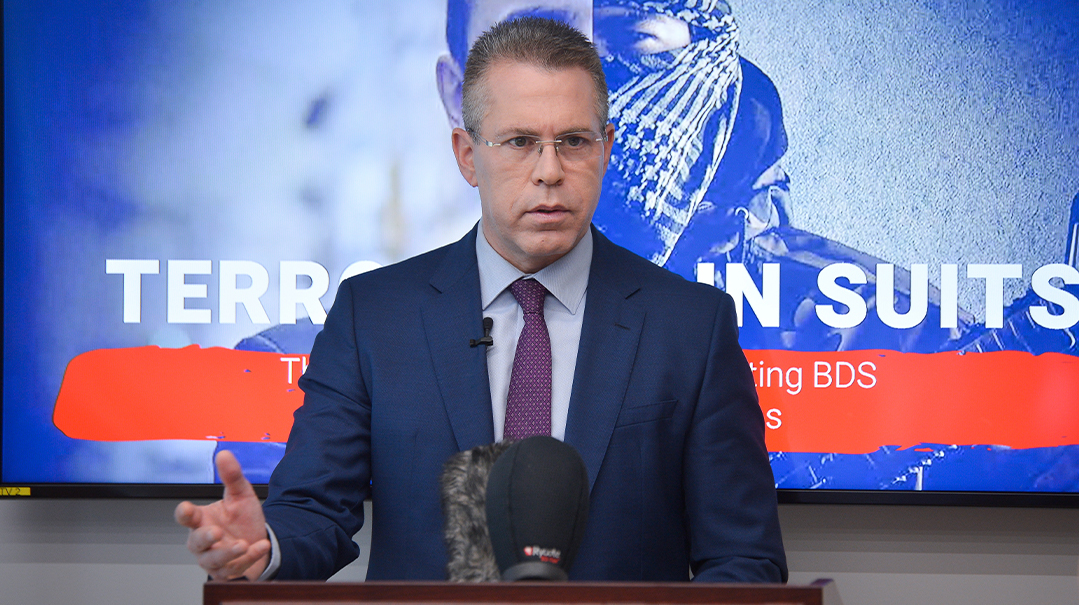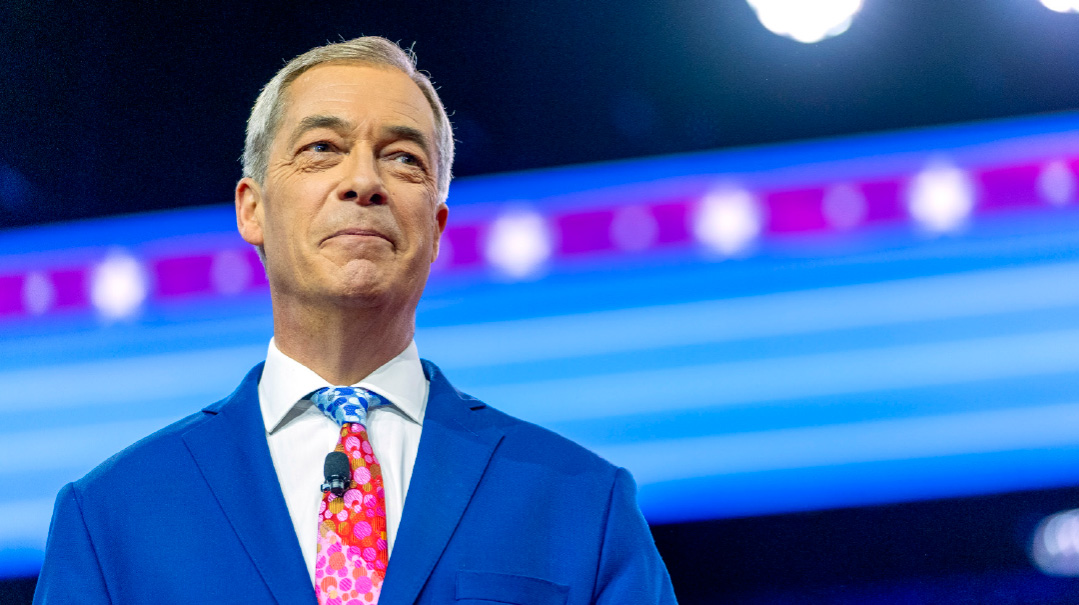Coffee Break with Israel’s UN Ambassador Gilad Erdan

Can Israel make headway at the UN, or does hostility run too deep?

Photo: Flash 90
Coffee Break
When former Likud minister Gilad Erdan was appointed last year as Israeli ambassador to both the United States and the United Nations, he stepped into giant shoes. The last person to perform both roles was legendary diplomat Abba Eban in the 1960s. The double act proved short-lived as Bibi’s fall shifted the political pendulum leftward. Mike Herzog — a dovish former general and brother of the new president — is set to take over in Washington. But Erdan isn’t heading home: He’ll be concentrating on making Israel’s case in the often-hostile arena of the UN.
After a year at the UN, what have you learned? Can Israel make headway there, or does hostility run too deep?
One thing I’ve seen is that yes, we do have opportunities in this body, and it’s worth the fight. There’s no doubt that it’s a hypocritical and morally confused institution, because of the power of individual member states. The UN also has an unfixable structural problem, given the fact that countries vote based on their regional or religious allegiances.
But it’s possible to change things by convincing individual countries to break off from their tribal allegiances, such as Guatemala, which moved its embassy to Jerusalem in 2018. We have to work hard to build ties, as well as conditioning the new ties we’ve developed on voting patterns in the UN. I think this is a strategy that should be pursued, even with states we’ve just signed peace treaties with.
What do you think of the Biden administration’s decision to return to UN bodies that the United States exited a year ago under Trump?
There was a political decision to leave the Human Rights Council because it’s a corrupt body — made up of 47 countries, many of which are undemocratic. They pretend to be striving for human rights, but in reality, it’s a whitewashing operation. The most authoritarian regimes gain recognition as human rights defenders.
Congress also passed legislation forcing the United States to pull out of bodies that recognized Palestine as a state, because the other side wants to force our hand with unilateral moves in the Hague and international recognition of Palestinian statehood without so much as agreeing to hold talks. We supported the moves at the time, and I’m not aware of any change in Israel’s position on these issues.
As strategic affairs minister, you were responsible for Israel’s hasbarah or PR effort. Do you think Israel managed to get its message across during Operation Guardian of the Walls a few months ago?
Israel has a built-in disadvantage in the social media age, given that there is a world population of two billion Muslims, plus the fact that thankfully we’re stronger militarily.
When you add the fact that — thanks to systems such as Iron Dome — we take fewer casualties during a war than the other side, it is a real challenge to win the hasbarah battle, because we need to explain our actions in rational terms based on the international laws of war. But it’s hard to argue against the emotional reaction of siding with the weaker party.
So Israel seems condemned to lose the battle for public opinion every time.
No, because we can do more. We need greater cooperation between the IDF and the Foreign Ministry so we can get images from the battlefield as soon as possible. For example, when Israel leveled the Associated Press building in Gaza, by the time we passed along the materials proving Hamas activity in the building, the social media narrative had been set.
We also need to prepare public opinion in advance, to educate the world about their use of human shields, UNRWA buildings, and so on. Just as we have ongoing military operations between wars, we need to delegitimize Hamas nonstop and not just in times of warfare.
“Let’s stop talking about ‘forever wars.’ let’s recognize that forever peace is not bought cheaply.”
It’s been a while since Westminster heard oratory the likes of which Conservative MP and Afghan veteran Tom Tugendhat displayed last week, in an emotional speech about the unfolding disaster in Kabul.
The thrust of his argument was that abandoning Afghanistan was not just hasty, it was wrongheaded, given the low cost of America’s ongoing commitment.
But the speech stood out for another reason. Tugendhat’s fierce denunciation of President Biden for abandoning NATO countries who fought alongside America was unprecedented given the special relationship both countries enjoy.
The rhetoric was part of a collective pan-European penny drop. It’s now dawned on Europeans, who largely detested Trump and were besotted with Biden, that the new president is not all he was cracked up to be — and that the US cares even less about what Europeans think and need.
— Omri Nahmias
History Desk
Around 200 years ago, reputable sources have it, Rav Chaim Volozhiner — known as the “Father of the Yeshivos” for his role in founding the modern yeshivah system — was seen crying. “I see that the Torah is destined to be exiled,” explained the foremost disciple of the Vilna Gaon. Predicting that the European Torah world would be destroyed, he finished, “It will be exiled to America, for a tenth and final time.”
That moving story is the background to the steep rise in kollel stipends recently announced by Lakewood’s Beth Medrash Govoha. The initiative will see payments triple from $4,472 to $13,500 a year in a program that will cost millions annually.
Even without this initiative, Orthodox philanthropy is large and growing, supporting vast Torah and chesed networks spanning America and well beyond.
So while the giving is taken for granted as part of frum life — especially in America, a country where charitable giving is seven times more prevalent than in continental Europe — the BMG initiative is something to sit up and notice.
After all, in the millennia-long history of Torah study, how often have salaries for those who sit and learn jumped by this much? Two centuries on, Rav Chaim Volozhiner’s words are coming true in a parade of dollar signs.
$1 trillion
Before the current US administration started to spray around dollars as if they grew on trees, a trillion was serious money. Now in the latest crackdown on Chinese society, China’s President Xi Jinping and his Communist Party are getting in on the act.
A series of regulatory moves involving the tech sector have lopped $1 trillion off China’s home-grown tech champions’ value, alongside an $87 billion loss for leading tech figures.
According to the Wall Street Journal, the moves, which include forcing ride-hailing giant Didi off China’s app stores after the company listed in the US, are designed to open up competition, as well as divert investment into tech sectors like robotics and chip design, where China trails the West. But ultimately, swallowing losses like this are designed to show one thing: that President-for-life Xi is firmly in charge.
— Gedalia Guttentag
(Originally featured in Mishpacha, Issue 875)
Oops! We could not locate your form.







